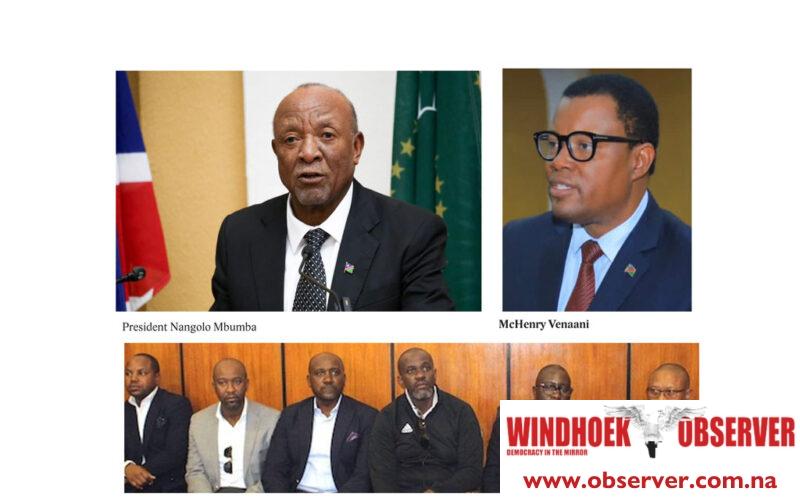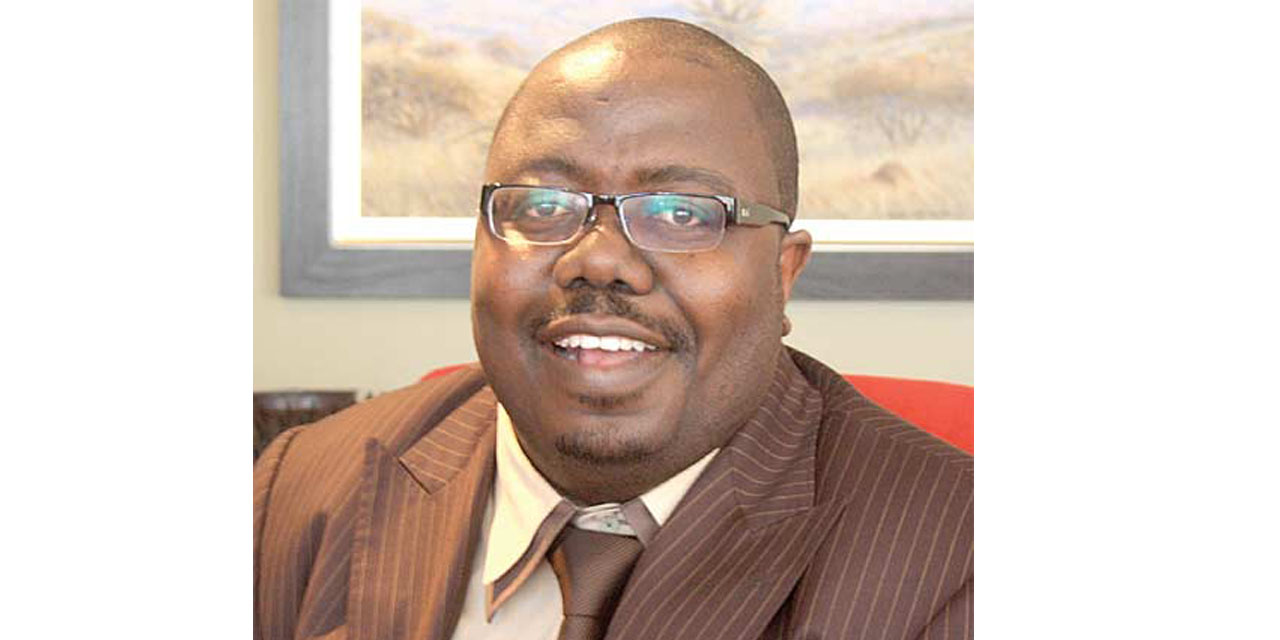Hertta-Maria Amutenja
President Nangolo Mbumba has made a commitment to testify in the ongoing Fishrot fraud, corruption, and racketeering trial if requested to do so by the court.
His assertion came in response to a question posed to him by opposition leader McHenry Venaani in Parliament yesterday during the State of the Nation Address (SONA).
Venaani wanted to know if President Mbumba is willing to appear and testify in court against the fishrot accused persons, since he was Secretary General of the Swapo Party when the alleged crimes were committed, and the ruling party has been accused numerous times of profiting from the alleged corrupt practices.
Addressing the concerns regarding any potential involvement in dubious dealings, President Mbumba stated he is available to testify if he court summon him.
“If I am asked to appear before the court, I will. I am accountable to the people of Namibia; they are my boss,” said Mbumba.
In his SONA remarks, Mbumba outlined the strides Namibia has made in combating corruption. Notably, that of Namibia maintaining the 6th position in Africa on the 2023 Transparency International Corruption Perception Index, indicating the robustness of the country’s systems and institutions to fight graft activities.
Stating that progress has been made in strengthening national anti-corruption mechanisms, with the rollout of the National Anti-Corruption Strategy and Action Plan 2021-2025. Operationalising the Witness Protection Act of 2017 which reflects government’s commitment to ensuring the safety of witnesses involved in corruption cases.
Additionally, Mbumba reiterated his support for the removal of the Veterinary Cordon Fence (VCF), also known as the Red line, which was introduced during the colonial time as a stock disease control mechanism to protect Namibia’s beef exporting industry from stock diseases, such as foot-and-mouth and lung sickness.
The President emphasised the need for unity and pragmatism in addressing this contentious issue.
He acknowledged the divergent perspectives surrounding the red line removal, noting the concerns of farmers both south and north of the line.
“Those of you who have farms this side (south of the red line) are saying don’t remove the red line because the economy of the whole country will collapse. Those who are on the other side (north of the red line) are saying you are not fair because you are getting all the benefits to sell your meat, but we in the north are not selling our meat.
Instead of quarreling about it, the principal idea is to say…let us remove it. But how and when and how money we will spend to remove it, that is really the question,” said Mbumba.
On the economic front, he said Namibia is poised for growth, particularly in the oil and gas sector, with increased exploration activities in promising oil-rich basins including the Walvis Basin and Orange Basin.
Saying that government’s focus on green industrialisation and the establishment of the Sovereign Wealth Fund are indicative of its efforts to maximise opportunities and ensure sustainable development.
“Today, Namibia is exploring the feasibility of using locally produced green hydrogen to manufacture goods such as ammonia, fertilizer, hydrogen, iron and cement in a cleaner manner, giving us a potential competitive advantage to capture new markets.
The green ammonia market is expected to reach 70 percent growth by 2030. This year, pilot projects for green hydrogen, green ammonia and green iron production will produce initial outputs for the first time,” he said.
Regarding social welfare, Mbumba reiterated the government’s commitment to addressing poverty and inequality. Investments have been made in social sectors such as health, education, and poverty eradication, reflecting a people-centric approach to governance.
Moreover, Mbumba highlighted several achievements during the reporting period aimed at improving the lives of Namibians and promoting socio-economic development.
Over 331,009 households, including 33,105 marginalized ones, received monthly drought relief, demonstrating the government’s commitment to addressing food insecurity and poverty.
He further stated that approximately 57,581 farmers were equipped with training in crop and livestock production, while 354 tractors and other equipment were deployed nationwide through the Namibia Agricultural Mechanization and Seed Implement Programme (NAMSIP), enhancing agricultural productivity and livelihoods.
Furthermore, achievements in urban land delivery, housing, sanitation, and water infrastructure underscore efforts to improve living conditions and access to essential services for all Namibians.
The government provided subsidies to local authorities and regional councils to the tune of N$297 million, under the Mass Urban and Regional Land Servicing Programme.




